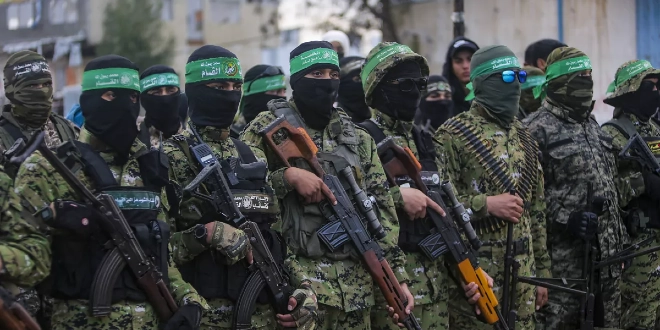Hamas has announced its agreement to a mediator-backed proposal to release one living American-Israeli hostage along with the bodies of four others who died while in captivity. However, Israeli Prime Minister Benjamin Netanyahu’s office expressed skepticism about the offer, accusing Hamas of attempting to manipulate the negotiations currently taking place in Qatar regarding the next phase of the Israel-Hamas ceasefire.
The militant group did not specify when the release of soldier Edan Alexander and the remains of the four other hostages would take place or what it expected in return. Alexander was 19 years old when he was captured during the Hamas-led attack on Israel on October 7, 2023, which triggered the ongoing conflict. It remains unclear which mediators proposed the release deal, but the United States, led by special hostage envoy Steve Witkoff, has been actively pushing for an agreement that would extend the ceasefire and facilitate limited hostage-prisoner exchanges.
Following Hamas’ statement, Netanyahu’s office asserted that Israel had already agreed to the proposal and had shown flexibility in negotiations, but accused Hamas of refusing to make concessions. The Israeli government also claimed that Hamas’ announcement regarding the release of an American hostage was an attempt to disrupt the negotiations. Netanyahu is expected to meet with his ministerial team to receive an update on the discussions and determine the next steps.
Ongoing Ceasefire Talks and Humanitarian Crisis
The ceasefire, which temporarily halted intense fighting between Israel and Hamas, saw 25 hostages returned alive along with the remains of eight others in exchange for the release of nearly 2,000 Palestinian prisoners. During this period, Israeli forces withdrew to buffer zones within Gaza, allowing displaced Palestinians to return to the northern areas. The ceasefire also enabled hundreds of aid trucks to enter Gaza daily, although Israel later suspended deliveries.
Israel has been pressuring Hamas to release half of the remaining hostages in exchange for an extension of the ceasefire and discussions about a permanent truce. According to Israeli intelligence, Hamas is holding 24 living hostages and the bodies of 35 others. In response to Hamas’ reluctance to agree to Israel’s terms, the Israeli government cut off all aid to Gaza, affecting the region’s over two million residents. Hamas has warned that the blockade could also impact the remaining hostages.
Hamas is pushing to move forward with negotiations for the next phase of the ceasefire, which would include the release of the remaining captives, the withdrawal of Israeli forces, and a lasting resolution to the conflict. The militant group has stated that the blockade has led to a humanitarian crisis, with 80% of the population losing access to food and 90% struggling to find clean drinking water due to halted aid deliveries and empty markets.
Restrictions at Al-Aqsa Mosque
Meanwhile, in Jerusalem, an estimated 80,000 Muslim worshippers gathered at the Al-Aqsa mosque compound for the second Friday of Ramadan, according to the Islamic Trust that oversees the site. Israeli authorities have tightened entry restrictions, only allowing men over 55 and women over 50 from the occupied territories to attend prayers.
Palestinians have expressed frustration over the limitations, with some describing the journey to Jerusalem as increasingly difficult. Hamas has accused Israel of escalating a “religious war” by imposing these restrictions, arguing that they are part of a broader effort to control Muslim religious practices at Al-Aqsa.


